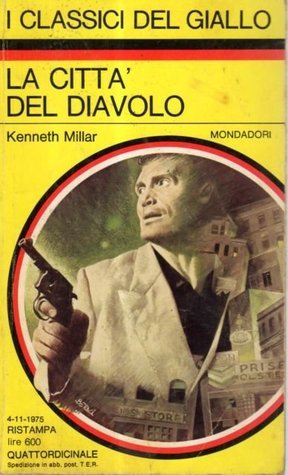What do you think?
Rate this book


196 pages, Paperback
First published January 1, 1947
"[...] the good people of the town [...] were protected against the lubricity of Rabelais, the immorality of Flaubert, the viciousness of Hemingway, and the degradation of Faulkner."Yet the absolute majority of the novel is suitable only for adolescent boys: beatings, shootings, blood, and torture, with guns being the main device of human communication.
The streams of our desire rose, met, mingled, and subsided. I felt empty, dazed, and spent."Ouch! Macdonald's favorite cheap plot device - accidentally overhearing peoples' conversations - is used three times. Many dialogues are dated and sound like lines from bad James Cagney movies. In one totally implausible passage, 22-year-old John talks with the cynical wisdom of a 60-year-old. There is a curious passage about Mr. Kaufman and his Marx and Engels' books, Red threat, and C.I.O. agitators. On the positive side, I have learned one new word, 'hoydenish'.